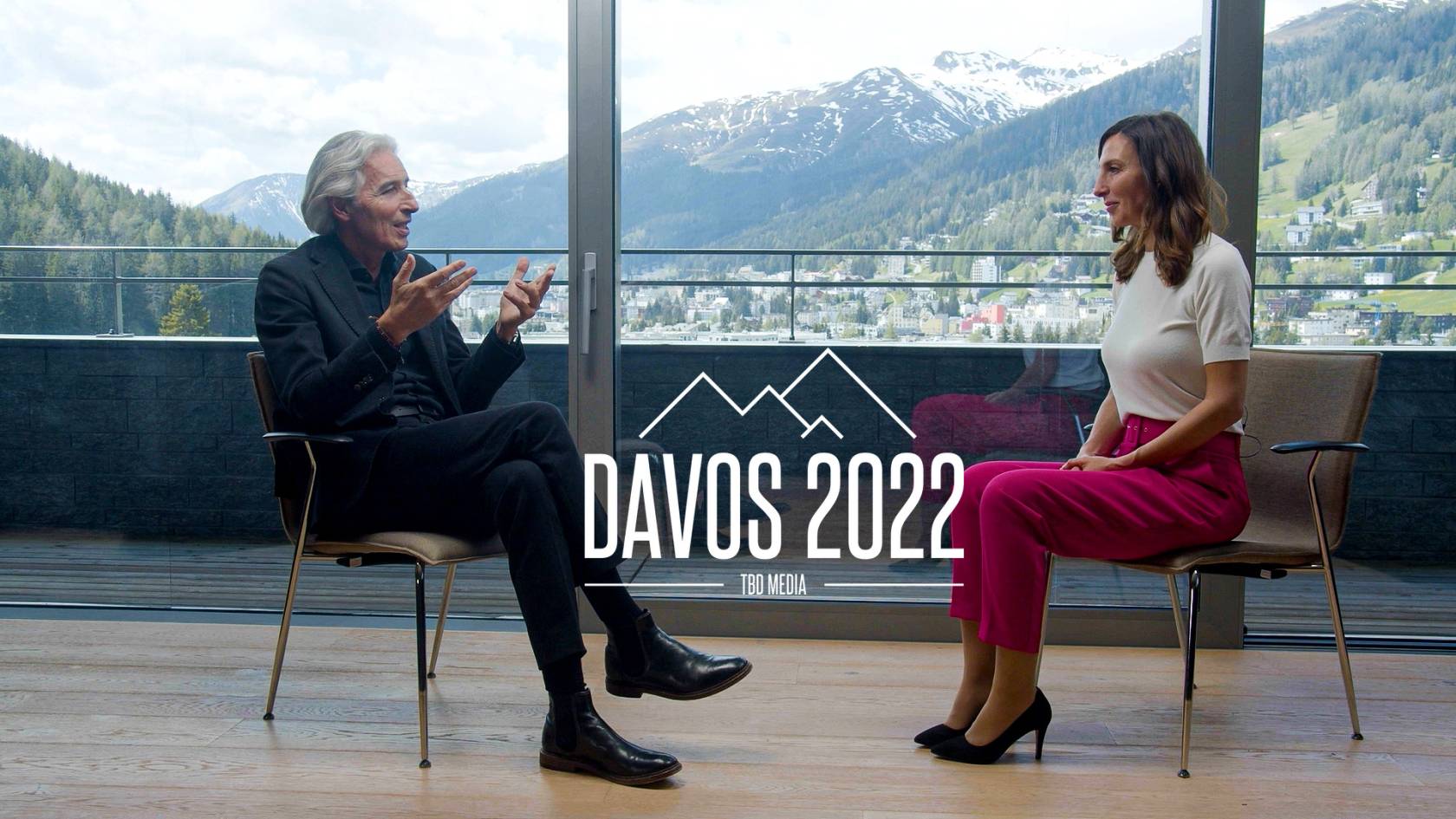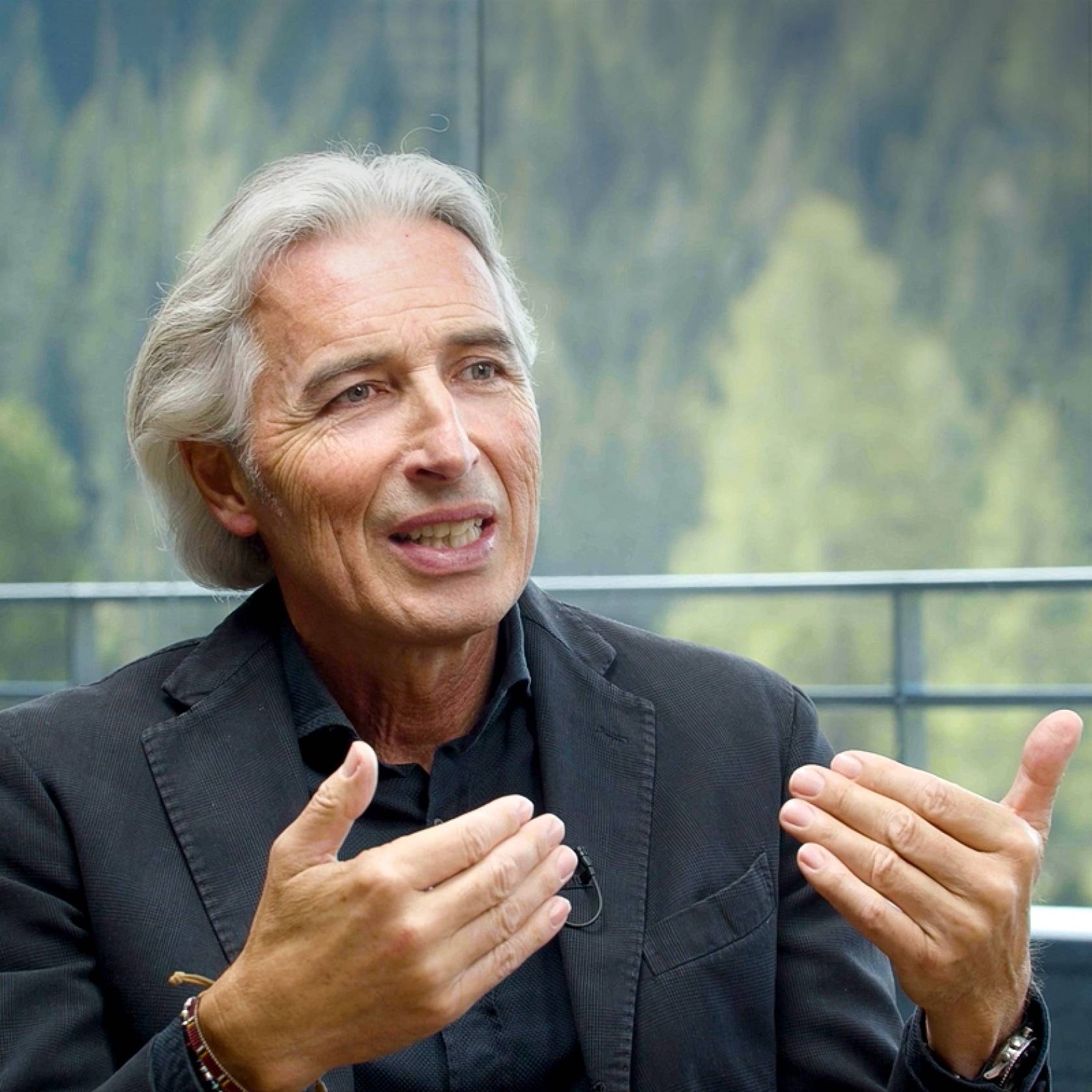World Economic Forum 2022
The Future of Work: Interview with ATOSS CEO Andreas F.J. Obereder.

New Work is a term used quite inflationary lately. And we know that it goes beyond nice offices with comfy coaches and table tennis or working remote. How would you define the future of work?
Andreas Obereder: For me, New Work stands for a better balance between the interests of employer and employees. It puts the employee in the center and asks: “What can we as an employer do better in our way of working to attract and retain the best possible talent.” Remote work or nice offices with a fruit basket alone won’t do the trick. Because this touches only the desk-workers. Successful companies make sure to look at the entire workforce, also to the frontline workers who perform their job not in the office but on a production line, cash desk, hospital bed or similar. Fancy co-working spaces won’t help them – but a good workforce management tool can.
How does digitized workforce management contribute to making work organizations fit for the future? And do employees and companies benefit equally from it?
Obereder: Let me give you a simple example. Think of a large retail store that employs dozens if not hundreds of people per store. We all know from own experience that customer traffic in a store varies a lot. Crowded on a weekend or in the evening hours, empty on a weekday morning. A good Workforce Management solution makes sure that your employees work when they are most needed. It also makes sure that only people who are trained on a cash desk are scheduled to work there. It makes sure that easy and hard shifts are equally distributed among the workers to create fairness.
A good tool integrates the employees in that process. It asks them through an app about their work preferences, publishes the latest schedule information early enough in advance and gives the employees the possibility to swap shifts among each other to better integrate their work life with their private life. This is a complex and continuous process, also because you constantly need to make sure that everything you do is compliant to a list of often hundreds of rules, regulations and labor laws.
So ultimately your vision is to revolutionize the interaction of economy and humanity. In other words to make economy more humane?
Obereder: Yes, our vision says: We are empowering the revolution in working environments to the benefit of companies, employees and society. We are paving the way to working lives that are more creative, intelligent and more human. At the same time, we are revolutionizing the interaction of cost efficiency and humanity. And this vision has guided us for more than 30 years.

Andreas F.J. OberederThe shortage of skilled workers will continue to increase and make life even more challenging for many companies. Therefore flexibility will further increase and with it the complexity of managing the workforce.
CEO and Founder, ATOSS
I understand that cohesion, team spirit, shared creativity, a self-determined workflow is important for the employees’ experience – however: how to achieve both: keeping your employees’ content and simultaneously implement a customer centric work ethic?
Obereder: Oh, I don’t think that you should balance between them. Actually, they come hand in hand. A positive employee experience correlates with employee efficiency, creativity, and productivity. This, in turn, has the same effect on customers. Happy employees create happy customer – it is as simple as that.
The ability to undergo transformation processes is probably the most crucial precondition for successful companies in the future. How do you approach work organizations that are skeptical or fearful about change and creating new structures in which learning and innovations are possible?
Obereder: The need for change and the speed of change will continue to increase. Organizations that are not open for change will be out of business soon. Let’s get back to that retail store example. Think of a retail store that lives up to the needed flexibility. Always enough people on the floor – but never too many. People with the right skills. People at the right cost. People that are happy with their work-life because it respects their private life. And then think of an old-school retail store with fixed working hours, no possibility for the employees to influence their schedule. Long check-out queues in busy times because of understaffing, bored employees in quiet times because of overstaffing. Who do you think will survive and gain market share?
If a company’s attractiveness is key to success and competitive advantages in the war for talents - what needs to be done in this area? How late in the game are we in Germany or Europe in comparison to the rest of the world?
Obereder: The most important thing is that companies recognize what to expect. The skills shortage will not go away. Plus, the younger workforce generations Y and Z demand different things from companies then before. They expect a digital experience in the company and have high demands on the work-life balance. If you want to be successful in attracting the high potentials, you have to offer flexibility. Employees want to decide, at least be involved in those decisions making processes, when the work and where the work. And yes, what we see here is that other European countries are already more advanced than Germany.
We are facing multiple crises right now, climate change is probably the most urgent one, how do your solutions contribute to sustainability and environmental protection?
Obereder: Our solution helps to make processes more efficient and effective. We are cutting out a lot of slack from the processes of our customers and most of the time this leads to a better use of resources. This can go from replacing paper-based process with a digital version over reducing the energy consumption by moving solutions in to the cloud up to enabling carpooling by adjusting the schedule to it.
What’s your outlook on the next 2-5 years?
Obereder: First of all, I really hope that we all will live in a more peaceful world. On the more business-related topics, we will see a continuation and acceleration of the trends visible already today: Digitalization of HR-processes, move to the cloud – close to every new WFM solution will be cloud-based, rather in 2 than in 5 years. The shortage of skilled workers will continue to increase and make life even more challenging for many companies. Therefore flexibility will further increase and with it the complexity of managing the workforce. Likewise, the pressure to manage the workforce efficiently and fairly. While this might sound dooming, I am also optimistic that companies will find intelligent and innovative solutions for managing their workforce.